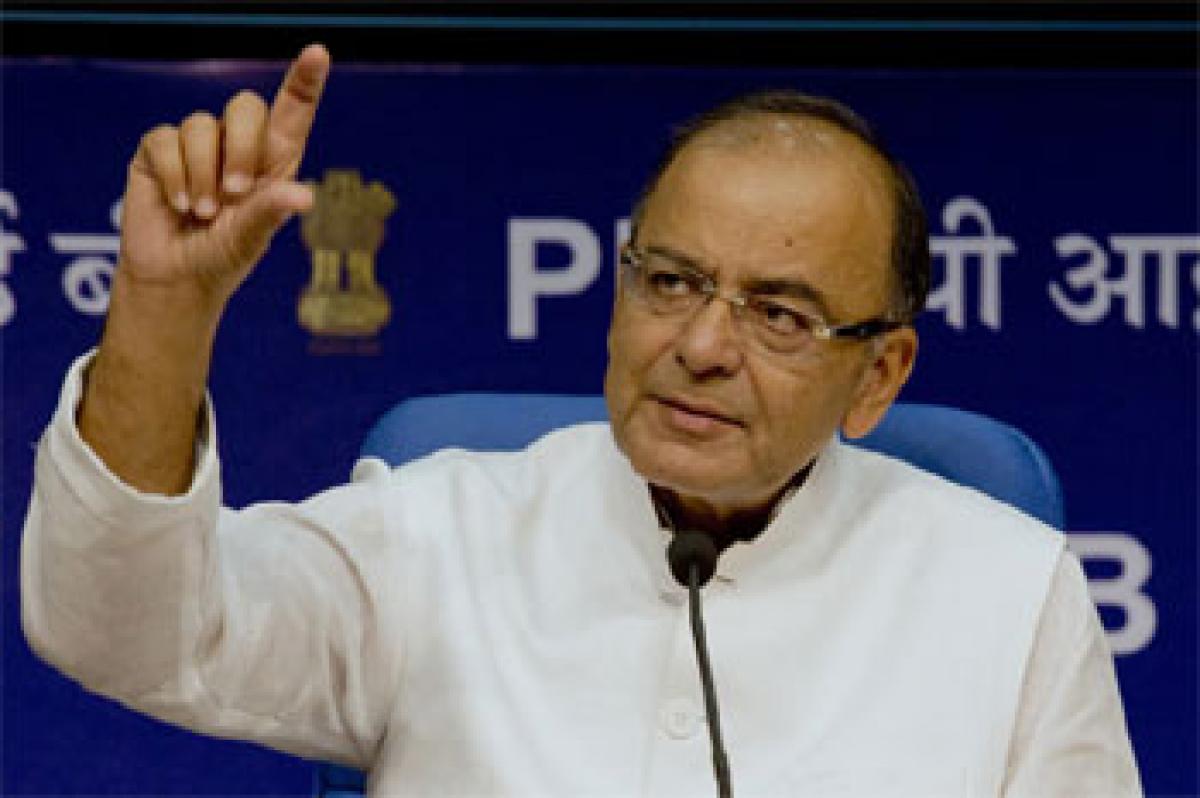Protect the small savers

Union Finance Minister Arun Jaitley said that his government shall move cautiously on revising down interest rates on retail deposits as it could hurt vulnerable sections like retired employees. Cutting interest rates on small savings, too, radically could hurt some sections of the society, Jaitley said.
.jpg) Union Finance Minister Arun Jaitley said that his government shall move cautiously on revising down interest rates on retail deposits as it could hurt vulnerable sections like retired employees. Cutting interest rates on small savings, too, radically could hurt some sections of the society, Jaitley said.
Union Finance Minister Arun Jaitley said that his government shall move cautiously on revising down interest rates on retail deposits as it could hurt vulnerable sections like retired employees. Cutting interest rates on small savings, too, radically could hurt some sections of the society, Jaitley said.
The Minister is right. But if one reads the statement between the lines, we can easily infer that the devil lies in the detail. The government is determined to extend the rate cut to small savings, too. However, it may provide some relief to select sections like senior citizens. Though this relief is to be welcomed, the need of the hour is to protect the entire small savers.
The RBI has been cutting interest rates this year to boost investment. It has been pressing the Government of India to lower rates on retail deposits as differential interest regime with small savings offering higher rate of interest would hurt bank deposits.
The government is in a Catch-22 situation. Failure to lower interest rates on retail deposits or small savings would also limit the banks’ capability to transfer the rate cuts to its customers. But, any radical reduction in interest rates on small savings would seriously jeopardise the well-being of millions of working people who deposit their meager savings in small deposits. But, social pragmatism should prevail over the economic principle being advocated by the central bank.
There is also a sound economic logic in arguing against lowering interest rates on small savings. The strong domestic savings, domestic investment and domestic markets have significantly contributed to India largely insulating itself from global financial crisis and subsequent recession.
The household savings constitute relatively more important portion of overall savings of the country even when compared to corporate and government savings. Besides, the money mobilised through small savings schemes is mainly channelised into financing government’s development expenditure.
The attractive interest rates on small savings play a critical role in financial system by reducing speculation and vulnerability in the economy. The unattractive small savings led to diversion of people’s savings into ponzi schemes and speculative markets. This has not only caused instability in the economic and financial system but exposed the small savers to rapacious capital thus adversely affecting the financial health of these families who have little or no capacity to withstand fiscal shocks.
Financial structure has many layers. They need to be differentially regulated depending on how and from whom they obtained their capital (such as small depositors, pension funds or high net worth individuals).
Small savings are already made less attractive to benefit speculators. Small savings collections saw a 56.59 per cent reduction from January 2014 to January 2015, according to data from the National Savings Institute, Nagpur. Net small savings collections by all States till January 2015 stood at Rs 4,318 crore as against Rs 9,948 crore till January 2014.
Any reduction in interest rates on small savings would lead to further deceleration in small savings collection. Finance Minister only hints at no radical reduction, but he does not rule out downward revision. Economic conservatism seems to be still prevailing over even political pragmatism and social rationale.







